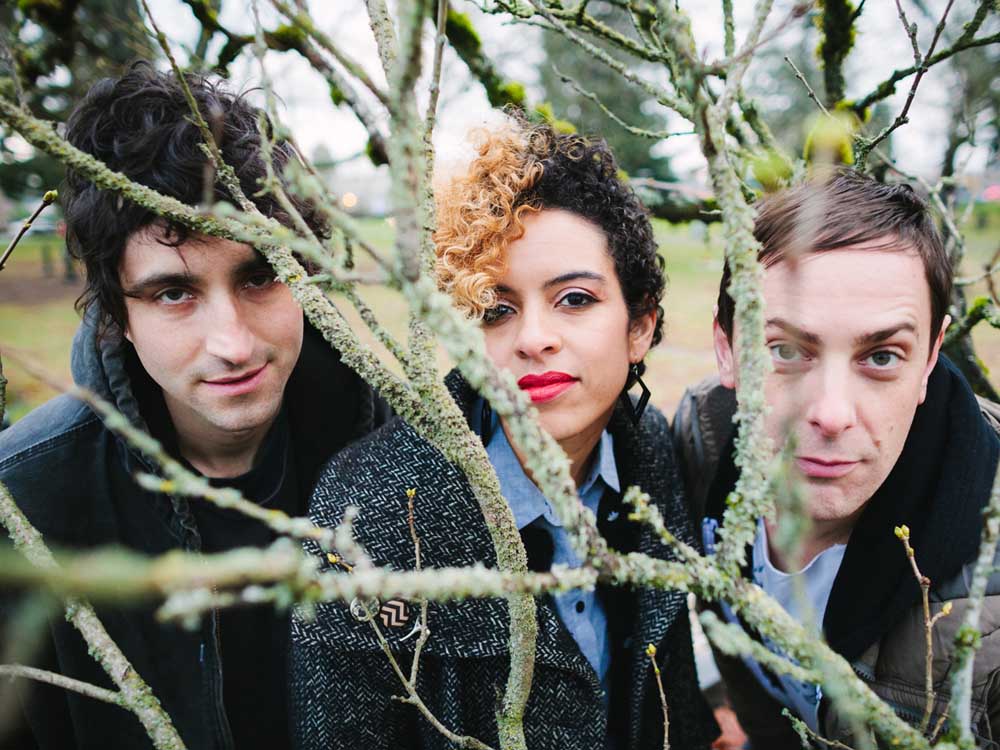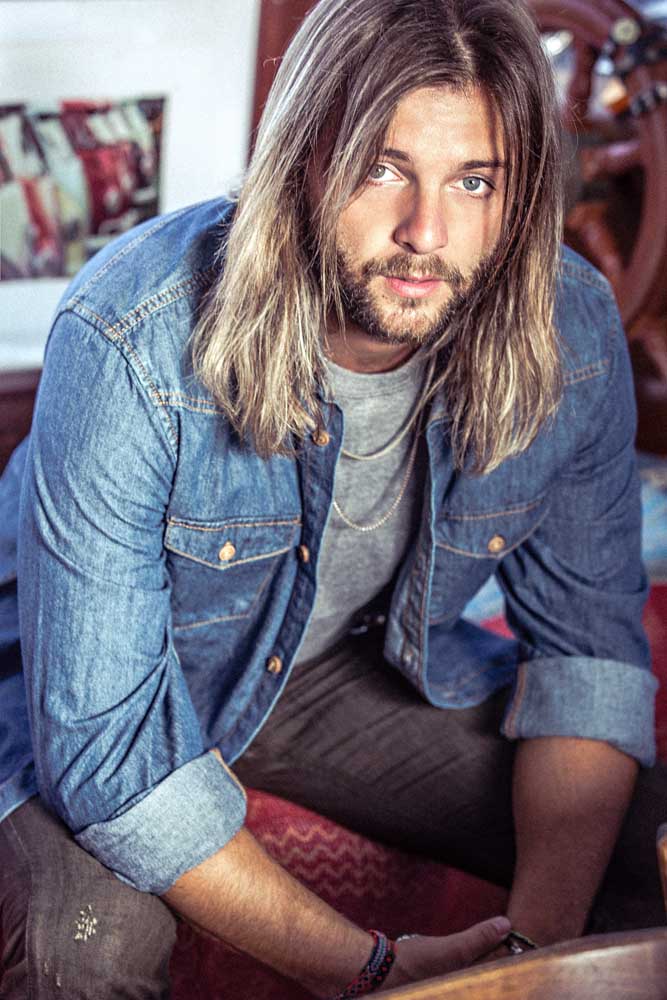The Thermals heat up Bend
Published 12:00 am Friday, February 19, 2016

- Jason Quigley / Submitted photoThe Thermals will perform at 6 tonight at Crow's Feet Commons.
From its larger-than-life pop hooks and fuzzy guitars to its preoccupation with death, “Hey You” is quintessential Thermals.
That’s no accident, according to guitarist, vocalist and main songwriter Hutch Harris. As the first single released from “We Disappear,” the Portland power-punk band’s first album in three years, “Hey You” needed to sound like The Thermals. Its follow-up, “My Heart Went Cold,” released a few weeks later, follows suit as well.
But that’s not indicative of the album as a whole, according to Harris. He likens “We Disappear,” due out March 25, to another classic Thermals release, 2006’s “The Body, the Blood, the Machine” — which the band is coincidentally (or perhaps purposefully, to hear Harris talk about it) celebrating this year in honor of its 10th anniversary.
“A lot of records we made intentionally, the sound is the same from one song to the next and the tempo is kind of the same; we like to set a mood and keep it,” Harris said recently from the band’s home base in Portland. “But with ‘The Body, The Blood …’, it’s a really varied record; like one song to the next are very different. Which, I feel like the new record we’ve made is like that too. The singles that we’ve released already this year definitely have our sound, but there’s a lot more songs on the record that are super different, like really, really different than any other songs that we’ve made. … We have some really slow, kind of heavy, like emo-type songs on the new record that I really want people to hear, just because it’s stuff we’ve never done at all.”
Central Oregon will get to hear these songs sooner than most. The band’s performance at Crow’s Feet Commons tonight for the third Apres Ski Bash of the season is a one-off before a full U.S. tour in April, and will only be the band’s third show this year following dates in Boise, Idaho, and Astoria.
It makes sense Bend is getting a preview, given The Thermals’ proximity and long relationship with the city. The band most recently played here at the Bite of Bend festival last summer after coming off a four-month break (the longest in the band’s 14-year history); before that, it rocked the Tower Theatre in 2010.
“Bend is really cool because it’s like, I know Bend has grown so much so fast, but it’s still kind of — because of where it is, I feel like there’s something kind of secret about it,” Harris said. “I feel like it’s a place — you know, like a lot of cities, it gets skipped by a lot of bands on tour, so I feel like when bands do go play there, people are really appreciative of you coming there.”
These February shows will also introduce second guitarist Jessica Boudreaux, frontwoman of fellow Portland pop-punkers Summer Cannibals, which will open shows on The Thermals’ April tour. She joins founding member and bassist Kathy Foster and longtime drummer Westin Glass, making The Thermals a four-piece for the first time since the tour for “The Body, the Blood, the Machine,” when the band added guitarist Joel Burrows (who died in 2012 due to complications from a head injury he received after being hit by a van, according to the Portland Mercury).
“When we started the band, I was just singing and we had another guitar player, and over the years a couple times we’ve had two guitarists, but overall it’s just been a three-piece,” Harris said. “So it’s really, really fun to be a four-piece again. It’s really fun for me to not play sometimes.”
While the band is making many sonic leaps this year, it recorded “We Disappear” with a familiar face — Chris Walla, formerly of Death Cab For Cutie, who also produced the band’s previous three albums. Much of the writing took place during the band’s four-month break from the road.
“We took — not like a hiatus, but we did rest for a little bit, which is something we hadn’t ever really done,” Harris said. “… I kept writing songs the whole time, and just eventually we felt ready, and we felt like we had a bunch of good songs and we were excited. We wanted to go into the studio really excited; we didn’t want to feel like we were just doing it just to do it.”
Lyrically “We Disappear” finds Hutch focused on “technology, love and death.”
“Some people have already asked me if it’s railing against technology,” Harris said. “I’m like, definitely not, because I love technology and I’m obsessed with technology, but I know it felt like a problem as well. I spend way too much time on all my devices.”
Anyone who follows The Thermals’ joke-filled Facebook page knows this. Example: Last month the band posted a doctored version of the “We Disappear” cover, which features a dolphin beached on the side of a volcano, with the title “Waves” in place of the actual title and the announcement, “(J)ust changed the name of our new record to Waves.” (Clearly, the band is not above trolling its audience.)
“When I post funny stuff, the response is way bigger and better (than) when I just post news,” Harris continued. “I post a funny photo of Chris Farley or something, it gets like 1,000 likes; I post about our tour dates, it gets like 20 likes. You want all the social stuff to be entertaining to people because it’s what keeps people paying attention to what you’re doing, which is cool, and I have fun with it. That’s just another way I’m obsessed with technology; I’m always on the Internet, doing the Instagram, Twitter, Facebook. That stuff is fun for me.”
The last two themes aren’t surprising considering the band’s previous albums, especially the most recent two (2010’s “Personal Life” and 2013’s “Desperate Ground”).
“Love and death, those are just things we always sing about,” Harris said. “The last record was all about death and a little bit of love, and then the record before that was all about love and not much death, but a lot of love. But most records we’ve done have been about love or death; it’s just like what most art is about.”
With “The Body, the Blood, the Machine” set to receive a colored vinyl reissue from Sub Pop Records later in the year, fans also can expect the band to focus heavily on songs from that album at its shows. The album, a loose concept record that brought many of Harris’ preoccupations with fascism and religion to the fore, is considered the band’s breakthrough, ending up on 2006 year-end best-of lists by Pitchfork, National Public Radio, Spin and more.
“A lot of the songs we haven’t played for super long — some that we haven’t played since the tour when it came out in 2006,” Harris said. “That’s super fun. That’s still most people’s favorite record; that’s our most popular and successful record. All those songs are really fun to play.”
— Reporter: 541-617-7814, bmcelhiney@bendbulletin.com






